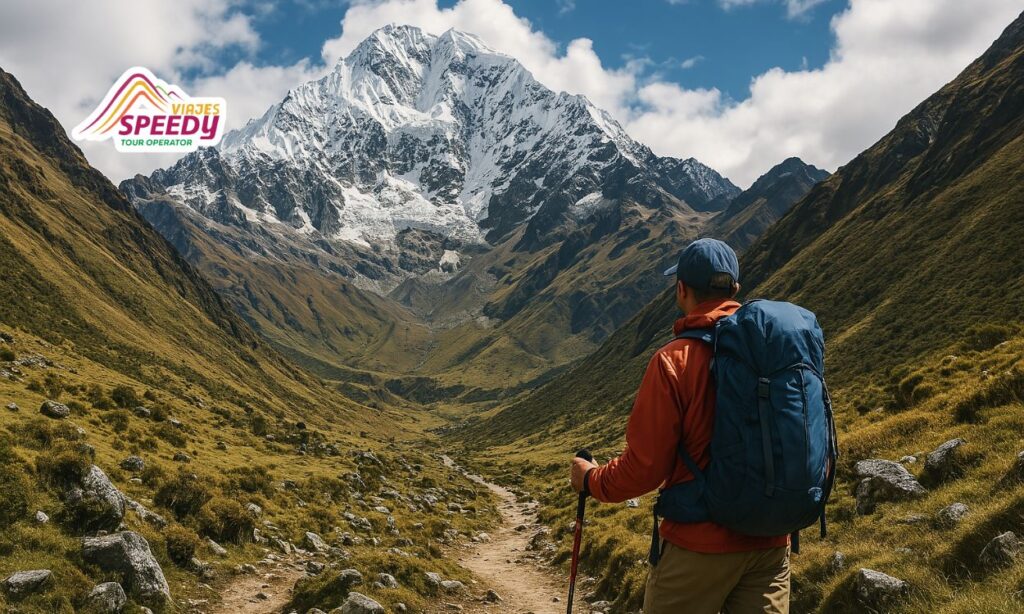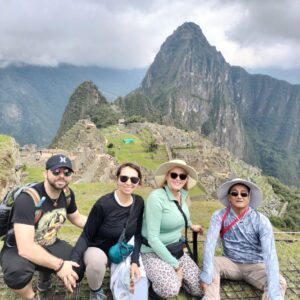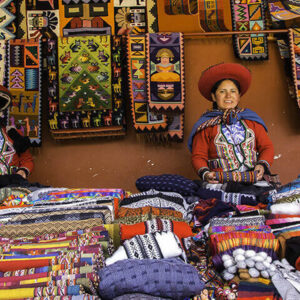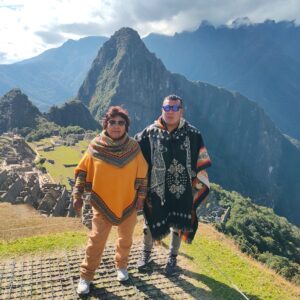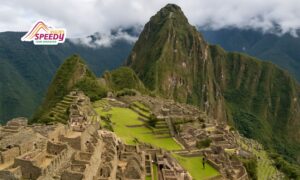The question “how difficult is the Salkantay Trek” is one of the most common among adventurous travelers heading to Peru. The Salkantay Trek is a thrilling alternative to the traditional Inca Trail, offering a rich experience for those hiking to Machu Picchu via Salkantay. But it’s no walk in the park—it demands preparation, endurance, and a love for high-altitude adventure.
In this guide, we’ll explore the Salkantay Trek difficulty, its elevation profile, daily challenges, preparation tips, and how it compares to the Inca Trail. If you’re wondering what to expect on the Salkantay Trek, read on—and start planning your journey today.
Reserve tu aventura ahora con Viaje Speedy.
Understanding the Salkantay Trek Difficulty Level
The Salkantay Trek difficulty is considered moderate to challenging. The trail spans approximately 60 kilometers (37 miles) over 4 to 5 days, with steep ascents, rocky descents, and high-altitude passes. Unlike city walks or casual hikes, this trek is physically demanding and can be mentally taxing if you’re unprepared.
Salkantay Trek Physical Challenge
One of the biggest physical tests is the Salkantay Pass, which reaches an altitude of 4,650 meters (15,255 feet). At that height, oxygen levels are significantly lower, which increases fatigue and the risk of altitude sickness. The trail demands good cardiovascular endurance, especially on Day 2, the hardest of the entire route.
How Hard Is the Salkantay Trek Compared to Other Trails?
When asking how hard is the Salkantay Trek, it’s useful to compare it to the well-known Inca Trail.
Salkantay vs Inca Trail
| Feature | Salkantay Trek | Inca Trail |
|---|---|---|
| Distance | ~60 km | ~43 km |
| Max Altitude | 4,650 m | 4,215 m |
| Terrain | More rugged | Paved paths, stairs |
| Availability | Always open | Permits required, limited |
| Difficulty | Higher (due to altitude) | Moderate |
The Salkantay Trail elevation gain and its raw terrain make it a more demanding trek than the Inca Trail for most hikers.
Salkantay Trek Altitude and Elevation Gain
The Salkantay Trek altitude is no joke. You start at 2,900 meters in Mollepata and ascend gradually to 4,650 meters at the Salkantay Pass. The daily elevation gain varies but can reach up to 1,000 meters in a single day.
| Day | Starting Altitude | Max Altitude | Elevation Gain |
| 1 | 2,900 m | 3,850 m | ~950 m |
| 2 | 3,850 m | 4,650 m | ~800 m |
| 3 | 2,900 m | 2,900 m | 0 m (flat/descent) |
| 4 | 2,040 m | 2,430 m | ~390 m |
What to Expect on the Salkantay Trek: Day-by-Day Breakdown
Day 1: Mollepata to Soraypampa
Moderate difficulty. Mostly uphill, this day serves as a warm-up and helps with acclimatization.
Day 2: Soraypampa to Chaullay via Salkantay Pass
Very challenging. Expect 8-10 hours of hiking with steep inclines and cold temperatures at high altitude.
Day 3: Chaullay to La Playa
Moderate to easy. Mostly downhill through cloud forests and warmer temperatures.
Day 4: La Playa to Aguas Calientes
Moderate. Includes a climb to Llactapata for a view of Machu Picchu before descending into Aguas Calientes.
Is the Salkantay Trek for Beginners?
A common question is: is the Salkantay Trek for beginners? While not impossible, it’s not ideal for those who’ve never hiked before or have little experience with altitude. Beginners should:
- Train with long hikes at home
- Improve their cardiovascular endurance
- Consider acclimating for 2–3 days in Cusco before the trek
Salkantay Trek Preparation and Training Guide
Proper Salkantay Trek preparation is crucial to enjoy the trek and reduce risk. Here’s a basic Salkantay Trek training guide:
1. Cardio Training
Hike, cycle, run—anything to improve heart and lung capacity.
2. Strength Training
Focus on legs, core, and balance. Squats, lunges, and planks are your friends.
3. Altitude Acclimatization
Spend at least 2 days in Cusco (3,400 m) before the trek.
4. Gear Preparation
- Broken-in hiking boots
- Thermal layers and waterproof gear
- Trekking poles
Consulta nuestra lista completa de equipamiento.
When Is the Best Time to Hike Salkantay?
The best time to hike Salkantay is during the dry season, from April to October. These months offer clearer skies, safer trails, and better views.
Avoid the rainy season (November to March), as it increases the difficulty due to mud, landslides, and poor visibility.
Salkantay Trek Tips to Conquer the Trail
Here are our top Salkantay Trek tips to make your journey smoother:
- Go slow and hydrate often
- Use coca leaves or pills for altitude sickness
- Bring layers: temperatures vary drastically
- Sleep well the night before Day 2
- Carry snacks rich in carbs and electrolytes
- Hire a reliable trekking agency (like Viaje Speedy)
The Salkantay Trek Experience: A Journey Beyond Difficulty
Despite the challenges, the Salkantay Trek experience is unforgettable. You’ll hike through snow-capped peaks, lush jungles, and ancient ruins—all leading to the wonder of Machu Picchu.
Many hikers describe it as life-changing. The physical challenge is matched by the raw beauty of Peru and the deep connection with nature and history.
Peru Trekking Difficulty Levels: Where Does Salkantay Stand?
In terms of Peru trekking difficulty levels, the Salkantay Trek is ranked as challenging, just below technical climbs like Ausangate or the Cordillera Blanca, but tougher than the Inca Trail or Rainbow Mountain.
It’s best suited for intermediate to advanced trekkers, though determined beginners with proper training can also complete it.
Final Thoughts: Should You Attempt the Salkantay Trek?
So, how difficult is the Salkantay Trek? The honest answer: it’s tough—but incredibly rewarding. It requires physical endurance, altitude readiness, and mental strength. However, with the right preparation, anyone with determination and a love for adventure can do it.
Ready to take on the challenge?
Book your Salkantay Trek now with Viaje Speedy and experience Peru’s wildest path to Machu Picchu.

